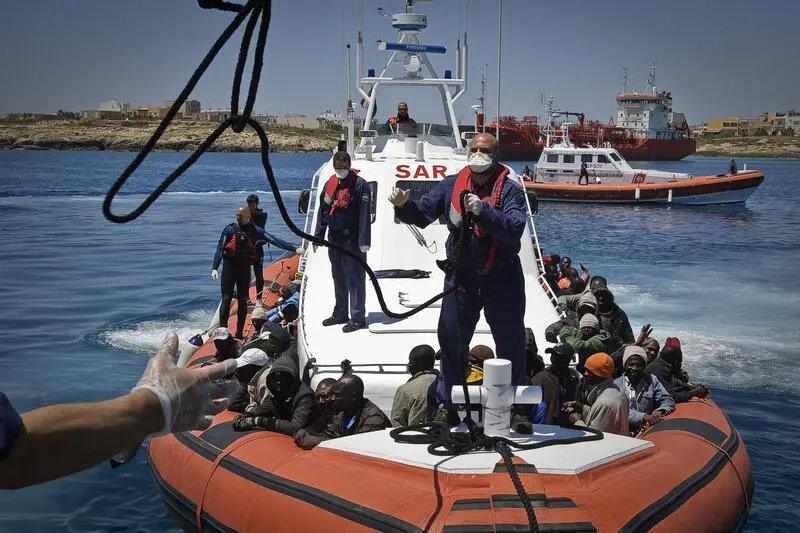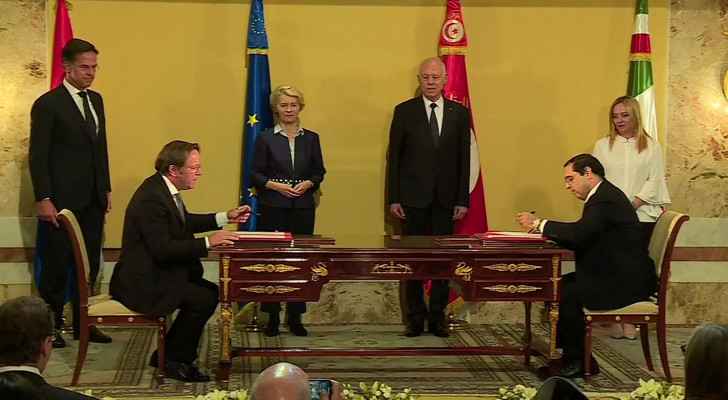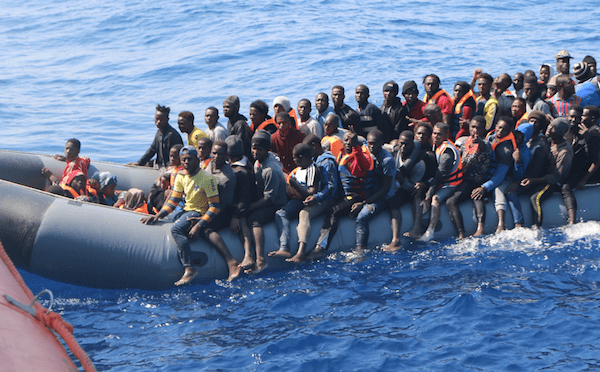After signing a 1bn euro deal with the European Union, the government of Tunisia has served notice that, Tunis is not a “reception center” for returning Sub-Saharan migrants from Italy, Spain or any other European nation.
To avoid entrapping itself to an agreement similar to what the United Kingdom has with Rwanda, officials in the North African nation, have chosen to turn back only Tunisian, who are entering Europe illegally.
However, the decision of the Tunisian government seems to be an impediment for the Italian Prime Minister Giorgia Meloni, who just recently secured significant modifications to a drafted immigration law, that would permit officials to deport people back to the nations they migrated from, regardless of whether they had only been in the country for a short period of time.

According to a top EU official, he confirmed that, the Tunisian Premier, Kais Saied previously warned the EU that, Tunisia will not serve as the border guard to the EU, thus confirming the stringent stance taken by the Tunisian leader.
“That is a point on which the Tunisian authorities feel they have communicated this clearly that, they shouldn’t be a reception point for irregular migrants generally coming from Europe.”
An Undisclosed EU Official.
However, there is the possibility that, a great deal of migrant would be repatriated back to Tunisia. About 8,000 individuals crossed the Mediterranean Sea to enter Europe in April of this year, 1,000 in May and 5,000 in June.

However, a deal was agreed between the Tunisia government and the European Union, after a delegation headed by the President of the EU commission Ursula Von der Leyen, and Giorgia Meloni, Prime Minister of Italy, and Mark Rutte, Prime Minister of the Netherland, made a trip to the north African country.
In addition to a fresh effort to speed up legal processes for Tunisians to work or study in the EU, the deal included the return thousands of Tunisian migrants, after they risk the perilous journey across the Mediterranean.
Moreover, to assist Tunisia in combating people smugglers, €105 million has been given as part of the accord.
The Red Crescent and other humanitarian organizations would be awarded contracts to provide transportation, and other services for migrants who want to return to their home countries, with almost half of the budget being made available for these purposes.

Furthermore, Tunisia has been chastised for its handling of migrants. President Saied accused “hordes” of migrants from Sub-Saharan African countries of a “plot” to alter the the nation’s demographic composition.
Cash-strapped Tunisia, a significant transit hub for migrants trying to make it to Europe, has seen a surge in racially inspired assaults recently.
More often than not, the EU commission President described the package as cutting-edge, claiming, it contains “significant” steps to curb dangerous unregulated migration across the Mediterranean.
In June, EU interior minister reached a compromise on a migration regulations, that included a new guidelines for relocating migrants within the Union. Also countries would be charged 20,000 euros per a person, if they refuse to accept the allotment of asylum seekers.

According to the agreement, the EU will collaborate with Tunisia to provide renewable energy through solar and wind farms, with electricity being sent back to the EU via a new sub-marine cable linking to Italy.
The EU will resume negotiations on a partnership deal with Tunisia alongside negotiations to let it join the Horizon Europe and Erasmus+ student exchange programs, and a proposal of €900 million in macro finance remains on the agenda.



















